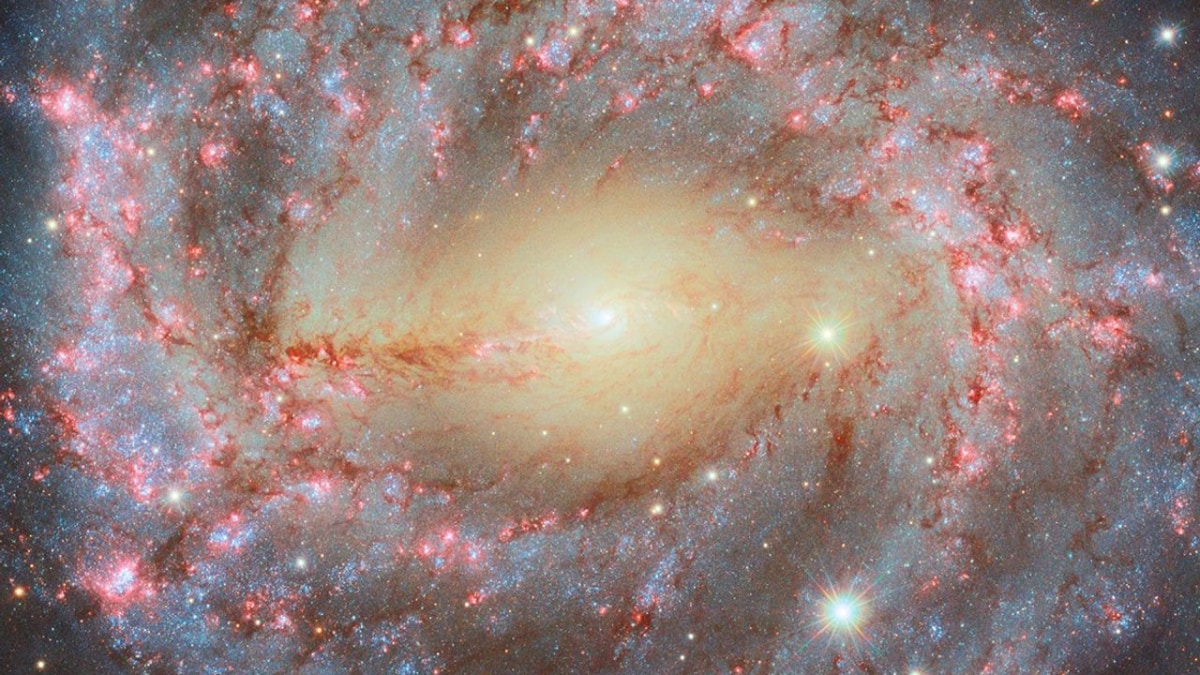The spiral galaxy NGC 5643, situated approximately 40 million light-years away in the constellation Lupus, has been brought into focus through the lens of the NASA/ESA Hubble Space Telescope. According to reports, the galaxy's symmetrical structure, known as a “grand design spiral,” is characterized by its prominent, well-defined spiral arms, which are outlined by young, bright-blue stars and reddish-brown dust clouds. Regions of intense star formation are also evident, marked by pinkish hues that stand out within the galactic disc.
Revelations Through Advanced Imaging
As per the latest blog by NASA, while NGC 5643 appears remarkable at visible wavelengthsits most intriguing attributes are observed in ultraviolet and X-ray light. These observations have confirmed the presence of an active galactic nucleus powered by a supermassive black hole. Researchers have explained that gas surrounding the black hole becomes extremely hot as it is drawn into an accretion disk, emitting radiation that spans the electromagnetic spectrum, with X-rays being particularly prominent.
A Surprising X-Ray Source
It has been noted in findings from ESA's XMM-Newton Observatory that the galaxy's brightest X-ray emitter is not the supermassive black hole but an object identified as NGC 5643 X-1. Reports suggest this source is likely a smaller black hole with an estimated mass of 30 Suns, engaged in a gravitational interaction with a companion star. Gas from the star is drawn into the black hole, forming a superheated accretion disk that outshines the galactic core in X-ray emissions.
New Insights From Observations
The latest Hubble image includes expanded wavelength data, enhancing earlier images by highlighting the red emissions from gas heated by massive young stars, as per reports. These observations continue to shed light on the dynamics of star formation and black hole activity in distant galaxies, providing a clearer view of the intricate processes shaping the universe. Embedded –


